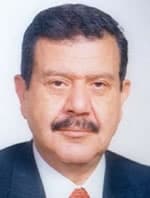RELIANCE GROWS ON PRIVATE SECTOR
THE MIDDLE EAST
The nations of the Middle East are increasingly looking to the private sector to help build crucial infrastructure projects.

|
|
|
Egypts ministry of finance is preparing a new law to regulate public-private partnerships, or PPPs, detailing the rights and obligations of both parties to such arrangements. The aim is to encourage the private sector to invest in PPPs to enable the government to extend new and improved services to the countrys fast-growing population without putting additional pressure on the national budget.
Speaking to the economic and financial affairs committee of the upper house of parliament, or Shura Council, in February, minister of finance Youssef Boutros-Ghali said he expects PPPs will face strong public resistance. This is always expected when dealing with an unfamiliar policy based on free-market and private sector forces, Boutros-Ghali said. Nonetheless, the government plans to implement the concept in all areas of infrastructure development, he added. The Egyptian government launched tender offers in February for 2,210 schools to be built around the country as part of its effort to revitalize the PPP system.
These partnerships will allow for the development of new infrastructure, including schools, hospitals, roads and container terminals, with the involvement of the private sector, says Yasser El Mallawany, chairman and CEO of EFG-Hermes Holding, a leading Egyptian investment bank and securities firm. This should help to invigorate the economy and sustain growth, he says.
According to the ministry of finance, the private sector has participated in 16 projects, valued at $6.2 billion, since 1991. These included telecommunications, transportation, irrigation and wastewater-treatment projects. The government has allowed private companies to build and operate projects for periods ranging from 15 to 40 years in exchange for an annual fee and plans to step up the pace of new PPP initiatives.
Rockville, Maryland-based Intercontinental Commerce has been selected to build the worlds largest monorail system in Cairo that will connect the downtown area directly with the pyramids and serve commuters between Cairo, Giza and 6 October City. The PPP project will include 42 stations and will provide jobs for 5,000 Egyptians during the five-year construction period. Hotels and shopping centers will be built along the route of the monorail.
Construction Sector Benefits
In Saudi Arabia, a growing number of megaprojects are entering the implementation stage. In contrast with the previous periods of intense infrastructure and project activity, much of the current development is financed and owned by the private sector, says Brad Bourland, general manager and chief economist at Riyadh-based Samba Financial Group.

|
|
|
Work began last year on the $53 billion King Abdullah Economic City on the Red Sea north of Jeddah. The project is being developed by Dubai-based Emaar Properties in collaboration with the Aseer and Binladen Group of Saudi Arabia.
Work is scheduled to begin this year on more of the six planned economic cities, as well as the King Abdullah financial district in Riyadh. We estimate that projects worth over $300 billion are under way or in advanced planning for execution over the next few years, Bourland says. All of these projects will contain a large construction element, which means that the strong recent growth in the construction sector is set to continue, he says.
The transportation and communications sectors also will benefit from the growth in construction, as a huge volume of raw materials has to be moved to construction sites, Bourland says. New mobile and fixed-line telecom licenses are due to be awarded this year, buoying momentum in the communications sub-sector, which continues to experience rapid growth stemming from a rapid increase in mobile phone subscribers, he says.
Petrochemicals dominate the major Saudi manufacturing projects entering production, Bourland says. The largest of these will be the Sabic-led $5 billion Yansab project in Yanbu, an industrial city in western Saudi Arabia on the Red Sea.
We expect 2007 to be a pivotal year in Saudi Arabias current economic boomthe year in which the boom moves from being an oil-revenue story to one of broad-based private-sector growth, Bourland says.

|
|
|
A second major project in Jordan is the planned expansion of the Queen Alia International Airport outside of Amman. The ministry of transport has selected a list of six finalists to tender on building a new terminal at the airport under a 25-year BOT contract. The first phase will boost the airports capacity to 9 million passengers annually by the end of 2010, or nearly triple its current capacity.
The biggest envisioned project in Jordan will require the cooperation of its neighbors. The Red Sea to Dead Sea canal project, that could cost as much as $3 billion to complete, is a vital plan for the region, according to Fariz. The evaporation that the Dead Sea is witnessing is very alarming, he says. The canal project would enable us to produce hydroelectric power for ourselves and the region and to satisfy all of our water requirements.
In the past, water rights have been the cause of many regional disputes. The project would involve pumping water from the Red Sea into a canal that would run to the Dead Sea, which at 1,200 feet below sea level is the lowest point on Earth.
Officials from Jordan, Israel and the Palestinian Authority met on the shores of the Dead Sea last December and agreed to ask the World Bank to coordinate the financing of a feasibility study for the canal project. The United States, France, Japan and the Netherlands have agreed to participate in financing the study, which could cost between $15 million and $20 million.
If the project is implemented, the desert area along the canal between the Red Sea at Aqaba, Jordan, and the Dead Sea could be turned into an agricultural region. A desalination plant would be required to provide drinking water. This is not a dream or a fantasy, but a realistic plan, Fariz says.
Of course, many of the projects in the Middle East are related to energy. Qatar launched an $18 billion gas-to-liquids project in February with Royal Dutch Shell. The Pearl project, as it is known, is one of a series of GTL projects in Qatar. The country plans to turn natural gas from its enormous North Field, the worlds largest pure gas field, into clean-burning liquid fuels.
Crown Prince Sheikh Tamim bin Hamad al-Thani and Britains Prince Charles laid the foundation stone for the plant at Ras Laffan Industrial City, 50 miles north of the capital Doha. The Pearl project is being developed under a production-sharing agreement with Qatar. The agreement covers both offshore and onshore project development and operations, with Shell providing 100% of project funding.
State-run Qatar Petroleum and ExxonMobil of the US decided in February not to proceed with a gas-to-liquids project but instead to pursue development of the Barzan project to supply Qatar with domestic gas. Qatar also has gas-production agreements with Total of France and Sasol of South Africa.
Gordon Platt



